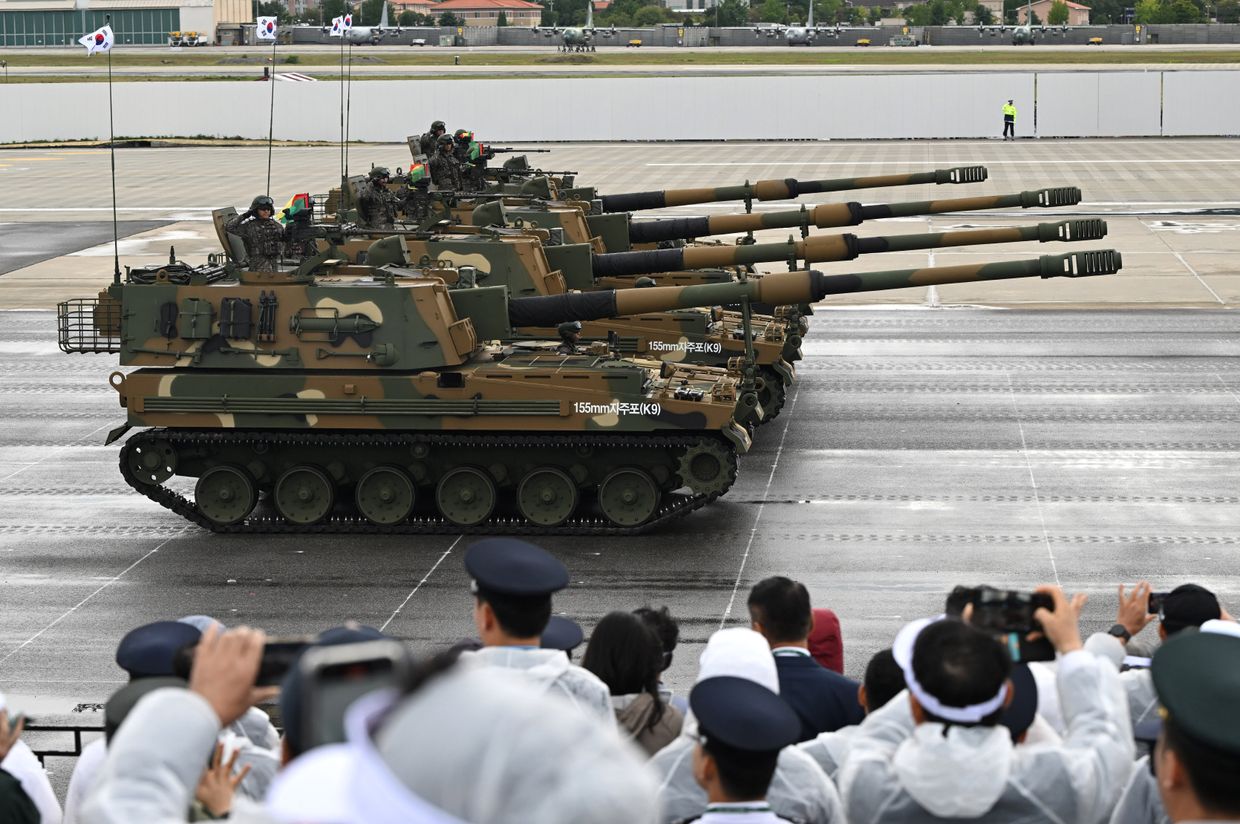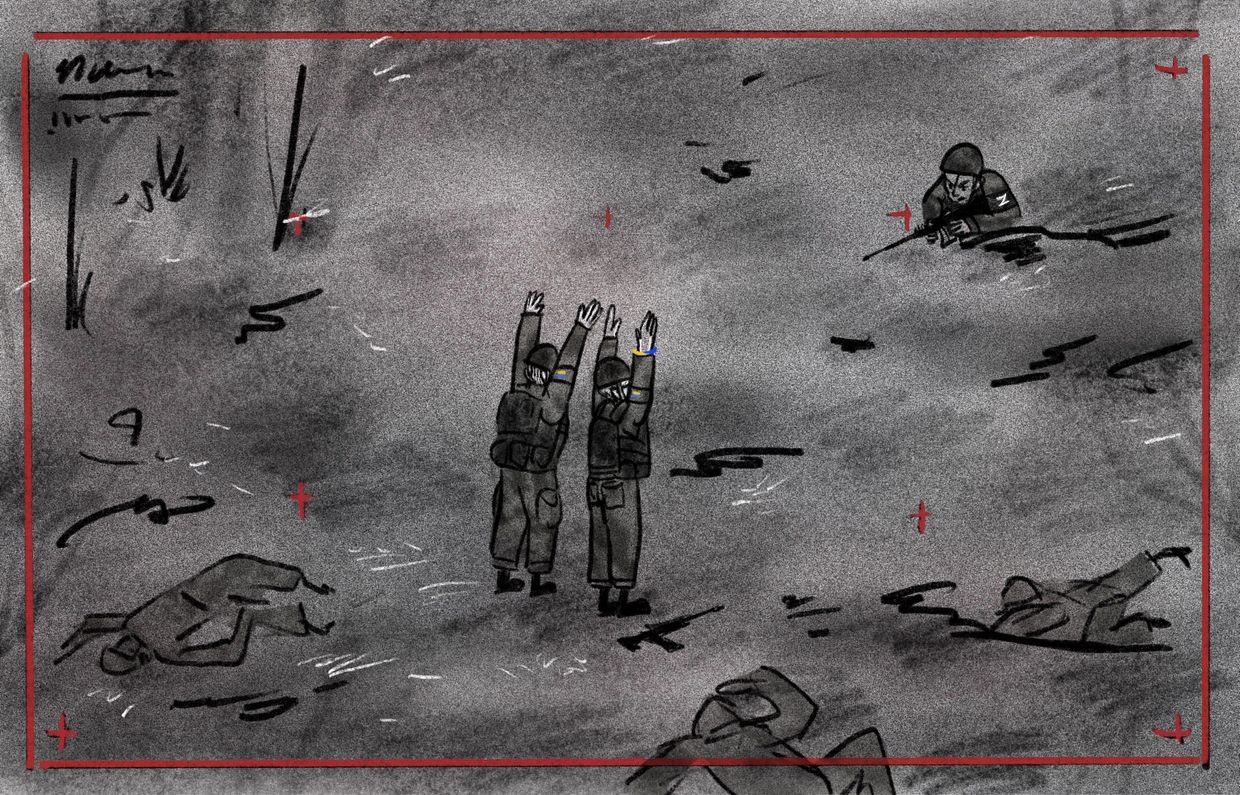Russia again suffers 2nd deadliest day since start of full-scale invasion, Ukraine claims
Some experts suggest the deployment of North Korean troops to Russia is at least in part linked to Moscow's surging manpower losses in recent months.

A destroyed tank with Russia's war symbol "V" on it, in the village of Bohorodychne, Donetsk Oblast, Ukraine on Jan. 27, 2024. (Roman Pilipey / AFP via Getty Images)
For the second time this month, Russian forces have suffered their second deadliest day since the start of the full-scale invasion of Ukraine, according to figures released by Kyiv.
The General Staff of Ukraine's Armed Forces on Oct. 25 reported 1,630 Russian casualties over the past day, surpassing the previous second-highest tally of 1,530, which was set just last week.
The bloodiest day for Moscow's forces was on May 13, when they suffered a reported 1,740 casualties.
Oct. 25 saw 1,630 Russian casualties reported over the past day.
The figures, which the Kyiv Independent could not independently verify, do not specify killed or wounded, though the overall consensus is that it includes dead, wounded, missing, and captured.
Facing a shortage of manpower and a pressing need to maintain the grinding advances in eastern Ukraine, Russia has reportedly been throwing some of its most skilled troops into mass infantry attacks, and at very high costs.
"The past four months have proved the costliest for Russian forces since the war began in 2022," according to a U.K. military intelligence report on Sept. 23.
North Korean troops reportedly deployed as Russian losses mount
According to some experts, the surge in losses in recent months may be one of the factors behind the deployment of North Korean troops to Russia.
"The disclosure that North Korean troops may appear on the front line is a direct consequence of catastrophic Russian casualties," John Foreman CBE, the U.K.'s former defense attache in Moscow from 2019 to 2022, told the Kyiv Independent last week.
"Their military effectiveness is questionable and they will be cannon fodder for Ukrainian defenders."
The Netherlands, on Oct. 25, became the latest country to confirm the deployment of North Korean troops, claiming at least 1,500 are to be stationed in Kursk Oblast where Ukraine still holds sizable territory after an incursion launched in August.
"We expect the troops will mainly be deployed in Kursk and consist of mainly special units from the North Korean army," Dutch Defense Minister Ruben Brekelmans said in comments reported by Reuters.
He added that Russia is likely testing the troops and gauging international reaction.
The U.S. on Oct. 23 made its first public confirmation that it had evidence of Pyongyang's soldiers being sent to Russia, following previous reports from Ukraine and South Korea.


U.S. National Security Council spokesperson John Kirby later said they were "fair game" for Ukrainian forces.
"If they do deploy to fight against Ukraine, they're fair game, they're fair targets, and the Ukrainian military will defend themselves against North Korean soldiers the same way they're defending themselves against Russian soldiers," Kirby told a press briefing at the White House.
"The Ukrainian military will defend themselves against North Korean soldiers the same way they're defending themselves against Russian soldiers."
"And so the possibility that there could be dead and wounded North Korean soldiers… is absolutely real if they get deployed." Kirby also revealed details of U.S. intelligence assessments, saying Washington believes North Korea "moved at least 3000 soldiers into eastern Russia."
"We assess that these soldiers traveled by ship from the Wan area in North Korea to Vladivostok, Russia," he said, adding: "These soldiers then traveled onward to multiple Russian military training sites in eastern Russia where they are currently undergoing training."
Kirby said it was too early to say for sure if they "will enter into combat alongside the Russian military," but added it was a "highly concerning probability."
In comments to Russian state TV on Oct. 25, Russian President Vladimir Putin said using North Korea's troops in its war in Ukraine was "our business," and that if Kyiv wanted to join NATO then Moscow would do what it had to ensure its security.
"The sooner they realize the futility of such an approach in relations with Russia, the better it will be for everyone, and perhaps, above all, for themselves," he said.
"When we have to decide something, we will decide... but it is our sovereign decision whether we will apply it, whether we will not, whether we need it," he added in reference to the deployment of North Korean troops.











